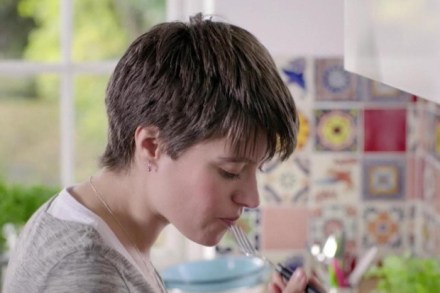Labour infiltrate Tory election campaign
Oh dear. Although Labour have had a lacklustre campaign so far, things are beginning to look up. While the shadow home secretary might not be able to get her figures right on bobbies, the party is still capable of a good old-fashioned stunt. Today hacks are gathered at a venue in Westminster to hear Philip Hammond and David Davis speak for the first time in the Conservative campaign. The message on the screen is that Corbyn would mean ‘no bombs for our army’ but ‘one big bombshell for your family’. However, the event has gone off message thanks to a Labour activist who managed to sneak her way into the





















